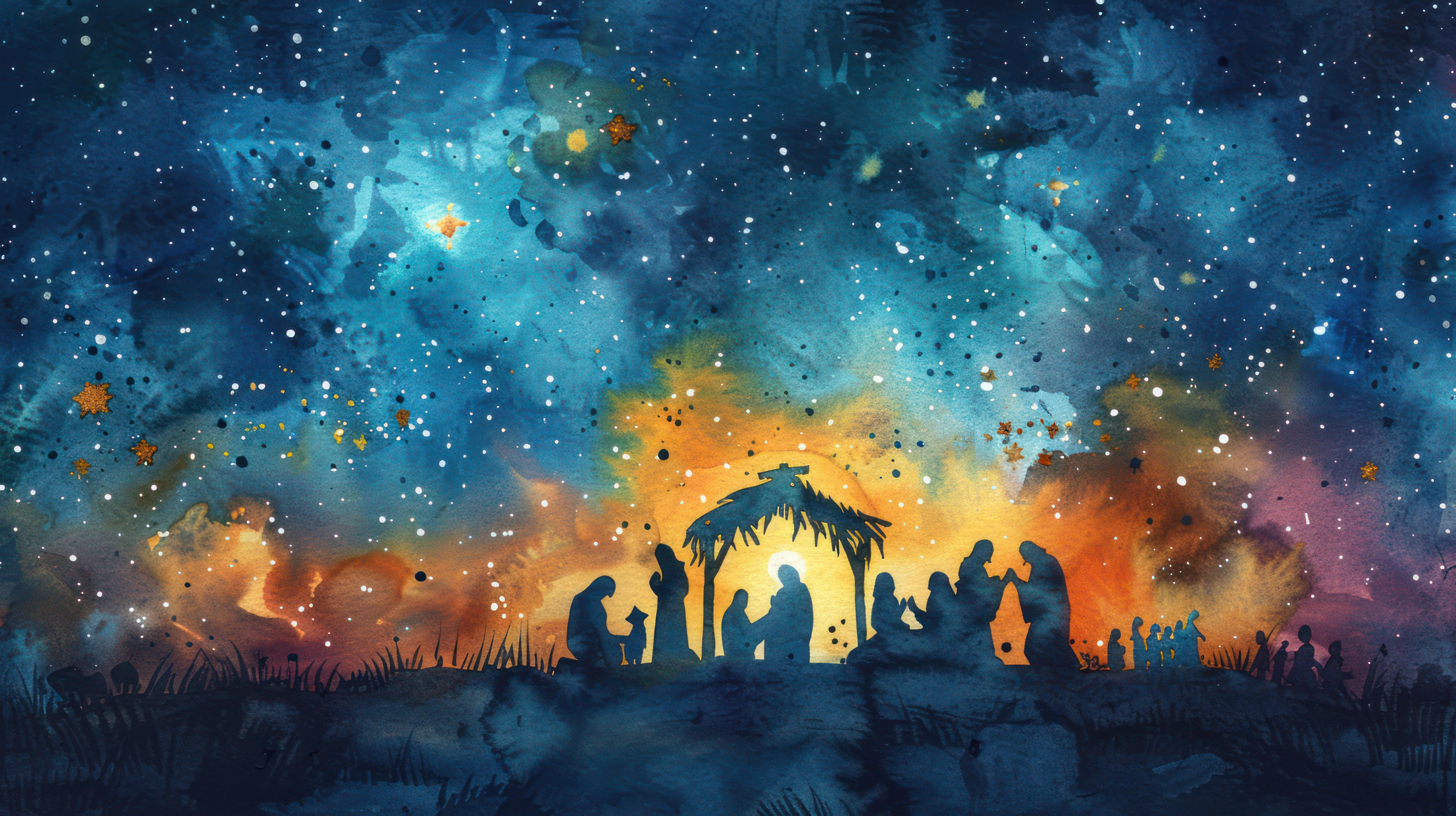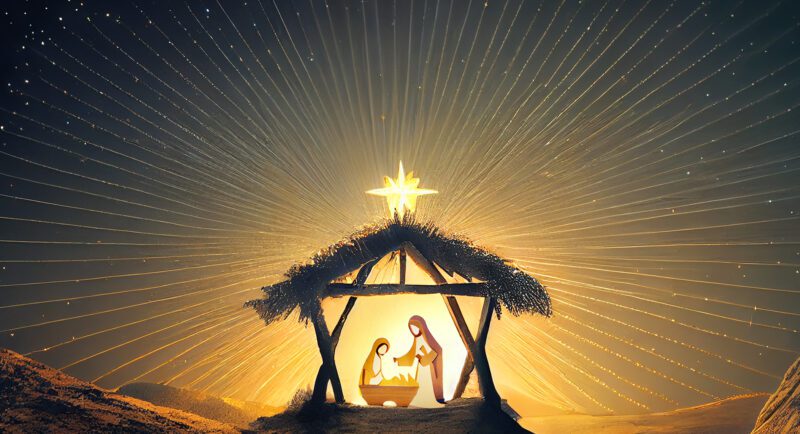
The Miracle and Mystery of the Incarnation
Published December 23, 2024
“It’s a Christmas miracle!” From Hollywood to New York City, and everywhere in between, this exclamation permeates the holiday season. While pop culture’s use of this phrase ranges from the humorous to the heartwarming, the true miracle of Christmas often goes overlooked. The Incarnation of the Son of God surpasses every miracle that has ever occurred or will ever occur. It defies human comprehension in a way no other miracle can
Because of its profundity, many Christians fail to appreciate how magnificent this miracle truly is, leading to a defective view of what it means that the Word became flesh. As we celebrate this miraculous event in just a few short days, let’s reflect on the true meaning of the Son of God becoming the Son of Man. One way to improve our understanding of this significant biblical teaching is by refuting what it does not mean. Throughout church history many errors have arisen regarding the Incarnation.
The first error is believing that the Incarnation is the birth of the first and greatest created being into the world as a man. This error has been dubbed Arianism after the heretic Arius, who popularized this view in the fourth century. As a side note, St. Nicholas (the namesake of the mythological Santa Claus) slapped Arius across the face during the Council of Nicea in 325 AD while Arius was defending his unbiblical views of the Incarnation! Arius taught that Jesus was a supernatural being but not eternal and therefore not God.
Contemporary cults that hold a similar view to Arius’ include Jehovah’s Witnesses, who deny that Jesus is truly God and, as the Symbol of Chalcedon articulated, consubstantial with the Father according to His deity. By reducing Jesus to a created being, even the first and greatest created being, Arius and those who believe as he did deny the truth of the biblical Jesus, who is not a created being but who was begotten by the Father before the ages and is the eternal Son of God.
A second error people believe about the Incarnation is that the birth of Jesus was the birth of the Father into the world, and that the Father thereby became the Son. This error is sometimes referred to today as modalism. Modalism teaches that there is one God who eternally exists as one person, but that one person takes different modes. However, the biblical teaching is clear that the Son is not the Father, and the Father is not the Son. While the Father and the Son are One in essence, they are not the same person, such that the Father can send the Son, and the Son can pray to the Father. To confuse the two persons by identifying them as one person playing two roles is to deny the biblical doctrine of God.
Another erroneous view of the Incarnation is that God took possession of a human being named Jesus. Some might even confess that God took possession of the human Jesus from conception so that Jesus was always possessed by God. To help clarify what this view asserts, we could ask the question, “Would Jesus of Nazareth have existed apart from the Incarnation?” The answer clearly is no because the only reason Jesus of Nazareth was conceived was though the miraculous work of the Spirit in Mary’s womb.
While Christians today would reject this view theologically, many accept it practically. This position manifests itself when people speak of Jesus as having a “human side and a divine side.” For example, when Jesus was tempted by the devil, people will sometimes say, “That was the human side of Jesus that was tempted.” But Jesus does not have “a human side” as if He could be divided up into two people, sometimes acting as a human and sometimes acting as God. Jesus is one person without division or separation. He does not fluctuate between deity one moment and humanity the next. When we ask who was tempted in the wilderness, we must answer that Jesus was tempted, not part of Jesus or the human Jesus, but Jesus Himself. Jesus, then, was not a man that was possessed by God and who therefore sometimes acted in humanity and sometimes in deity. Jesus is the eternal Son of God made flesh, inseparably God and man in one person.
The opposite error is that Jesus is one person with one nature. To try to avoid the previous error, some have asserted that Jesus only had one nature. The problem with this is that Jesus would not be able to be the Savior of humanity if He did not have a human nature and a divine nature. So if He was some sort of demigod with a nature that was a fusion of the human and divine, He was neither human nor divine, utterly unable to save us from our sins.
Sifting through these four errors helps us come to a clearer understanding of what the Incarnation is: it is the Son of God becoming human, the Word becoming flesh. We must always think of the Incarnation, then, in terms of addition rather than subtraction. The Son of God did not lose anything at the Incarnation, but He became man and took on human nature. In this sense, He truly is the God-Man. He existed eternally as the Son of God, the second person of the Trinity. In a stable in Bethlehem He was born as a man, becoming flesh, taking on human nature. From then on, to all eternity, He exists as one person, Jesus, the Son of God, with two natures, divine and human.
When we consider the birth of our Lord, we must realize what an immense mystery it is. Jesus was perfect in knowledge and wisdom, and yet He grew in wisdom and stature. He is the fountain of life who brought all things into being, and He hung on a cross and tasted death for sinners. He is too pure to look on evil but He endured the fiercest temptations anyone has ever experienced and emerged victorious. How can Jesus be true wisdom and grow in wisdom at the same time? How can Jesus be the giver and sustainer of life and yet die? How can Jesus be the omnipresent Son and yet be present in one place at a time like any other man? How can someone be both divine and human and retain the full properties of deity and humanity? This mystery is beyond our ability to explain or comprehend!
This is the miracle of Christmas. The one who created all things was conceived by the Spirit in a virgin’s womb. The Son of God became the Son of Man. The Word became flesh and dwelled among us. We cannot fathom how this can be, but we believe that it happened just as the Scripture says. This Christmas may we marvel at the miracle of the Incarnation and, like Jesus’ mother Mary, ponder all of these incredible truths in our hearts.




0 Comments